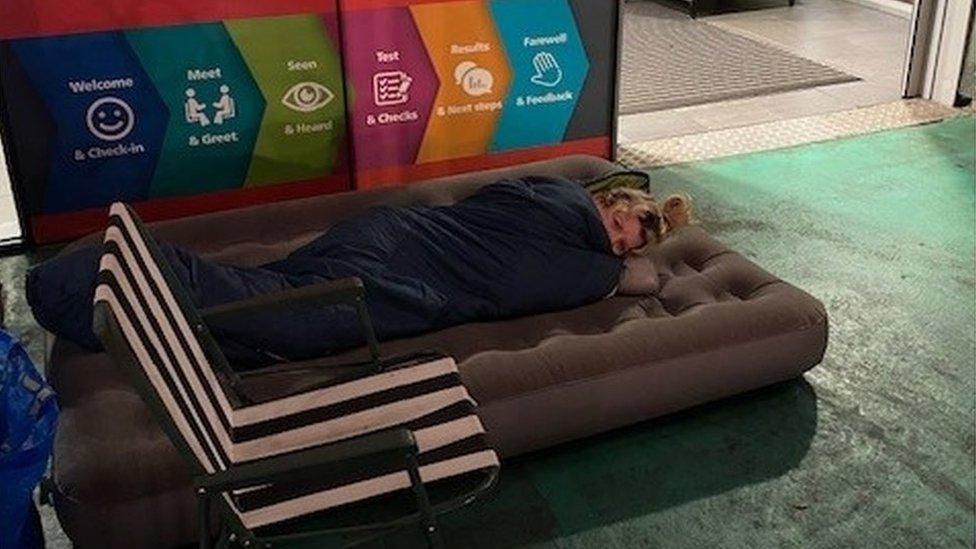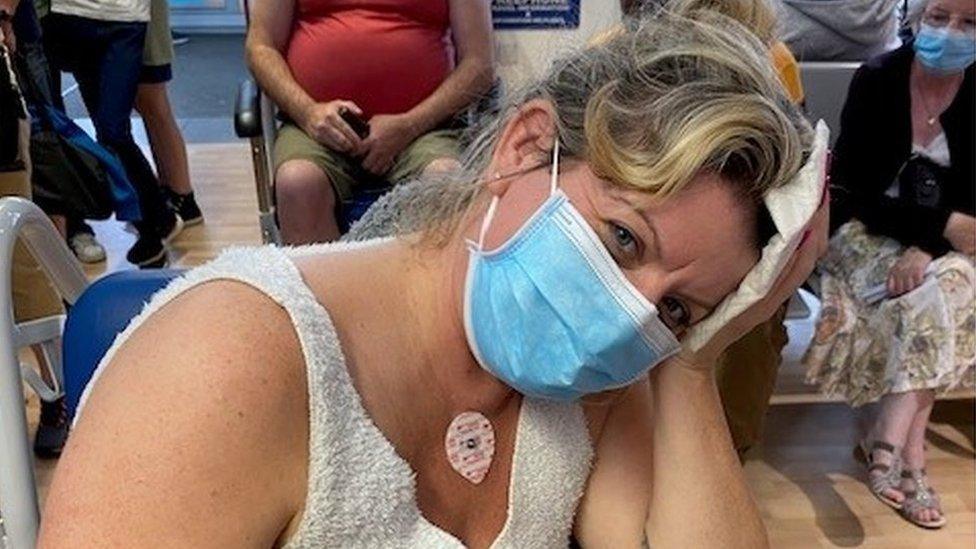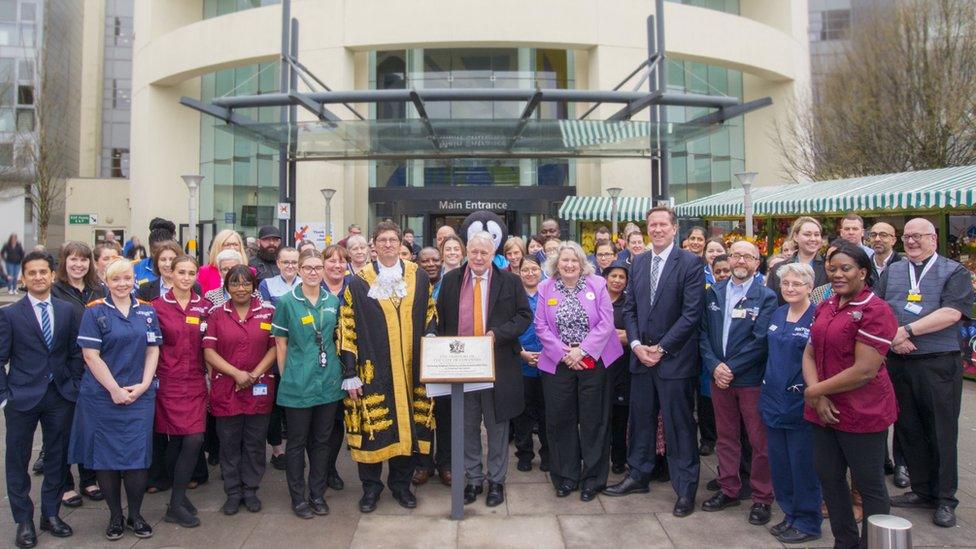Concerns over A&E waits in Coventry are being heard - watchdog
- Published

Sarah Davies lay on a blow up bed at the Walsgrave site last August but was told to remove it
Patients' concerns about long waits in A&E at a hospital are being listened to, a health watchdog says.
People face waiting for hours for treatment at University Hospitals Coventry and Warwickshire (UHCW) with queues out the hospital's door, patients told BBC CWR.
Healthwatch Coventry said it was liaising with hospital bosses to pass on experiences.
The trust said waiting was frustrating, but staff worked hard to treat people.
In an email sent to Radio CWR on Tuesday Eliza said she was with her partner at the A&E unit in Walsgrave. There were three patients, including two elderly ladies, waiting for a bed.
"All have been here since yesterday afternoon, one has pneumonia and has been waiting sat on a metal chair, by an opening door, without hot food and drinks for 22 hours."
A woman who wanted to remain anonymous said she went to the hospital with her unwell father at about 11:00 BST on Tuesday and discovered some people had been there since Sunday. There was also a queue of people waiting to be assessed going out of the door.
Back in August Chris Clarke and his partner Sarah Davies, who had Covid, visited the A&E unit and waited so long they put up a blow up bed for her to lie on.

Ms Davies said it was about 10 hours before she was seen
Ms Davies was not isolated and the hospital said they had no beds, Mr Clarke said.
Mr Clarke said he resorted to drastic action and brought out a blow up mattress he had left in his car for Ms Davies to lie on but was "abruptly" told to remove it by staff.
He then set it up outside for her to lie on but was told to remove it again. It took 10 hours to be seen by a doctor, the couple said.
Stuart Linnell, chair of Healthwatch Coventry, said he met chief executive Andy Hardy on Friday and was told the A&E was under a lot of pressure, particularly last week.
He said Mr Hardy explained it had a lot to do with people not being able to see their GP.
Mr Linnell said the group also talk to GP surgeries and that they were making "great strides" in making improvement to see patients, but there was "a shortage of doctors and appointments".
A spike in Covid cases had also had an impact.
In a statement, the hospital trust said it treats 160,000 patients a year in A&E and a clinician assesses the severity of symptoms each patient has so the sickest are seen first.
"We know waiting is frustrating, but our staff work extremely hard to treat every patient as quickly and efficiently as they can," they said.
The hospital urged patients to always choose the most appropriate NHS service for their condition.

Follow BBC West Midlands on Facebook, external, X, external and Instagram, external. Send your story ideas to: newsonline.westmidlands@bbc.co.uk, external
- Published21 March 2023
